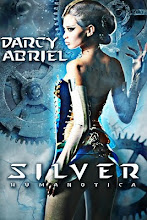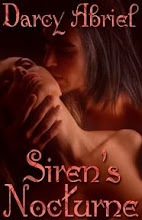 Every now and then one needs to be reminded of certain things about writing. It's never a question of learning a lesson once and knowing it sticks. It doesn't. Especially when it comes to self-doubt.
Every now and then one needs to be reminded of certain things about writing. It's never a question of learning a lesson once and knowing it sticks. It doesn't. Especially when it comes to self-doubt.
I've recently begun reading Dean Koontz's "Frankenstein" series. Too early to say how I like it because I've just started it, but the premise intrigued me. "Frankenstein" always was my favorite, and one of my first, introductions to horror (at about the age of 11), and I fell in love with the genre early on.
Moving on, I happened to come across an old interview of Mr. Koontz's done in 2008, and this particular response caught my eye and resonated somewhat. A good reminder not just to aspiring authors, but everyone, I think.
Excerpted from Strange Horizons interview, Fear Nothing: Interview with Dean Koontz by Michael McCarty, April 2008.
"I tell every young writer to find the material about which he or she can become passionate, work hard at using the language as well as he/she can use it—and to persevere. Throughout my career, until recently, I was continually told that my books would never hit big, that I couldn't mix genres the way I did, that my stories were too eccentric, that my vocabulary was too large and therefore limited the potential size of my audience, that even the very subtle spiritual elements in my work were too prominent and would bore or flat out offend modern readers, that readers didn't want stories with as much thematic freight as mine carried . . . blah, blah, blah. I was even told these things, relentlessly, after I'd seen my books rise to the number one slot on best-seller lists. What every young writer has to realize is that if he or she is doing something truly fresh, it will not immediately be supported, will not win big ad budgets, will not be understood. You must keep an open mind to criticism if it's about technical matters—that is, about grammar and syntax, about logic holes and clear story problems—but must diplomatically reject all criticism that relates to style, intent, theme. If you have clear and passionate purpose in your writing, something to say, and a determination to say it in a way unique to you, if you can explain to yourself exactly why you are doing what you're doing in the way you are doing it—then you have to stand fast and politely resist all attempts to change you. At the end of the day, if you write with conviction and passion, then the world will come around to your stories. If you bend too much to the will of others, you'll be reduced to blandness, to vanilla fiction, and no one will care. It also helps to sell your soul to Lucifer."I've often said to friends that I don't write for the money (though it certainly helps if I want to eat and keep a roof over my head), I'm in this because I have stories to tell. Self-doubt always eats at you, I don't care if it's your first story or your hundredth, and you have to fight through the fear, wall off the naysayers, learn the language, utilize it, and write the story that possesses you with a passion that leaves you sleepless at night and hearing the insistent, sometimes ruthless voices in your head by day.
It's scary, it's exhilarating, it's frightening. And it doesn't have to be horror to induce those emotions. I write what I write because those are the stories that call to me to be written. I've been fortunate enough to find publishers, and editors, who have been intrigued by the unusual, and sometimes odd workings of my muse. And thank God for the readers who enjoy the stories I need to tell.
Find your passion, keep your focus, believe in what you do, refine your craft. But most of all believe hard and write with passion.
Read more of the Dean Koontz interview at: http://www.strangehorizons.com/2008/20080428/1mccarty-a.shtml












